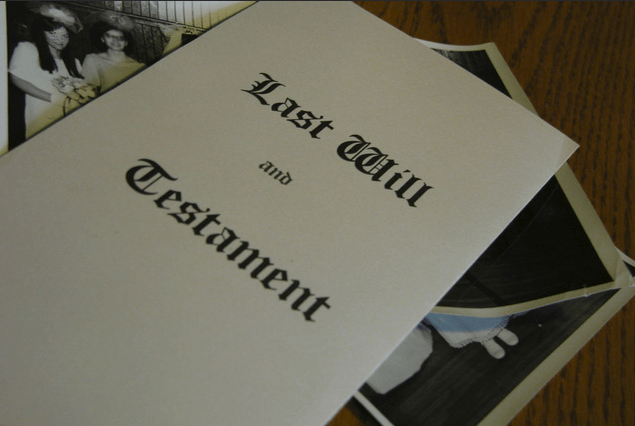
What does an Estate include?
An estate includes all assets, property, investments and financial interests of an individual held outright or jointly. Your estate can include items such as real estate, stocks, vehicles, furniture, as well as jewelry and other personal belongings
What is Intestate Succession?
If you die without a valid will, your estate is distributed according to intestate succession. That means your estate will be settled based on the State laws that direct who will inherit from your estate. For example, if you are married and die without a valid will in Alabama, what your spouse gets from your estate depends on whether you have living parents or children. If you do have living parents or children, then your spouse shares the estate. If you do not, your spouse inherits all of your estate. Having a will would ensure that particular assets go to the person you designate rather than depending on State law to distribute your assets.
What is Estate Planning?
Both a will and estate planning give instructions about how your estate property will be distributed. While a will is a legal document that provides instructions for estate distribution after your death, estate planning is more involved than just having a will. Your estate planning determines how your assets will be preserved, and managed, and distributed from now until your death.
A basic estate planning package includes a Last Will and Testament, a Self-proving Affidavit, and a Living Will or Advanced Health Care Directive. Several other documents to direct your wishes and needs, such as a power of attorney for health care, a trust, and a power of attorney for finances, can be part of a more extensive estate plan.
You may want to revisit your estate plan and provisions in your will at times of major life changes such as marriage, divorce, the birth of a child, the death of a beneficiary or the unavailability of an executor, as well as any changes to your estate assets including a significant purchase or an inheritance.
Why is it important to have a will?
A simple will is an inexpensive estate planning document in which you direct how and to whom you want your property distributed after you die. It can also provide for guardianship of your minor or disabled children. You do not need to have a large estate to justify having a will.
The provisions of a will may name beneficiaries to receive specific gifts or may leave the estate to designated heirs in shares or percentages. Specify alternate beneficiaries in case the primary beneficiaries don’t survive. The will should also provide for a personal representative or executor, and an alternate in case the first person is unwilling or unable to act, who carries out the will as written. Other provisions may include stating how debts, expenses and taxes will be paid or to provide a caretaker for your pets.
A valid will must meet certain legal requirements. Alabama law requires that a person making a will must be 18 years of age or older, of sound mind and under no undue influence. The will must be signed by the maker and witnessed by at least two people.
Under Alabama law, a will with a notarized, self-proving affidavit can be admitted to probate court without the testimony of the witnesses.
Your signed or executed will should be placed in a secure location for safekeeping.
You should then inform the person you chose as an executor or personal representative where your will is being kept so that they can access it when the time comes and begin their work to distribute your estate according to your directions.
What is not covered in a will?
Certain assets of your estate pass outside of your will and are not subject to probate. Such assets include property titled in joint ownership, payable on death accounts, life insurance, retirement plans and accounts, and employee death benefits. These assets pass automatically at death to another person, and your will is not applicable to them unless they are payable to your estate.
What is a Living Will or Advance Health Care Directive?
A Living Will or Advance Health Care Directive is a legal document you execute which states whether you want certain medical treatment in the event that you have a terminal illness, are expected to die within a relatively short time, or are permanently unconscious.
Your Living Will or Advance Health Care Directive becomes effective when you are no longer able to make and communicate your own wishes. To make sure that your wishes are enforced, you can go one step further and appoint a representative by executing a separate durable power of attorney for health care document.
Trusts

A trust is a legal contract where the grantor, the person who has the assets, makes arrangements for a person or entity, a trust administrator, to hold and manage those assets in trust for the benefit of those you designate as beneficiaries. A trust is designed to accomplish the purposes of property management and eventual disposition of property.
Creating a trust provides beneficial estate protection and ensures the proper distribution of assets. If your property has limited value or if most of the property has joint ownership, a trust may not be the best idea. A trust created during your lifetime may be revocable, meaning the terms can be changed by you; or it may be irrevocable, it cannot be revoked or changed. An irrevocable trust has the benefit of limiting inheritance taxes for estates worth than $5.4 million.
A common type of estate planning trust is a revocable living trust or inter vivos trust made during your lifetime. This trust avoids the administrative and legal costs of probate. Unlike the property listed in your will, the property in a living trust passes directly to your inheritors. You simply create a trust document and then fund the trust with the transfer of property. Many people name themselves as the trustee to maintain control over the trust property. At their death, a successor trustee assumes responsibility.
A testamentary trust is a trust that has its provisions set out in your will and becomes effective and irrevocable at your death. A trustee is appointed to manage the assets of the deceased. This type of trust is commonly used when the beneficiary is a child or disabled. Property passes into the trust by way of the will and is subject to probate.
Young parents may choose to create trusts either during their life or by wills for the benefit of their children in case both parents die before all their children have reached an age of sufficient maturity to handle property. A trust permits assets to be held as a single undivided fund to be used for the support and education of minor children according to their respective needs. A trust can then provide for eventual distribution when all children reach adulthood or a specified age.
A person may also decide to choose to create an irrevocable Special Needs Trust to provide for a disabled child or other disabled family member to have access to resources that are managed on their behalf without reducing their eligibility for public assistance with Social Security disability benefits, Medicare or Medicaid.
What is the purpose of Probate?
Probate is a verification and distribution proceeding involved with identifying estate property, paying legitimate estate debts, and distributing property to the beneficiaries or heirs in accordance with the laws of the state and the directions in the decedent’s will. The probate court oversees the process of administering the estate of the deceased. The probate judge will appoint a person to handle the estate administration who can be either an executor or personal representative named in the deceased person’s will or, if there is no will or the will is incomplete or invalid, an administrator. During the probate process, a lawyer can represent you by providing advice and handling proceedings in court.
